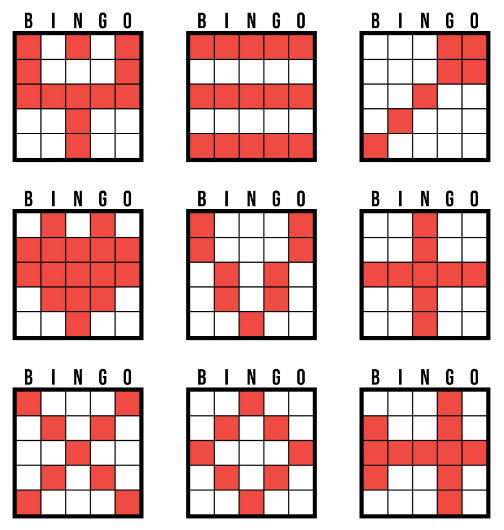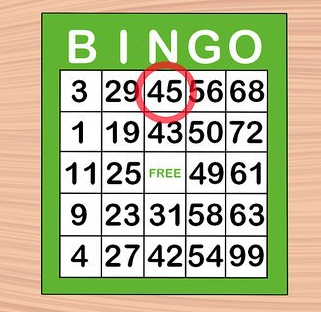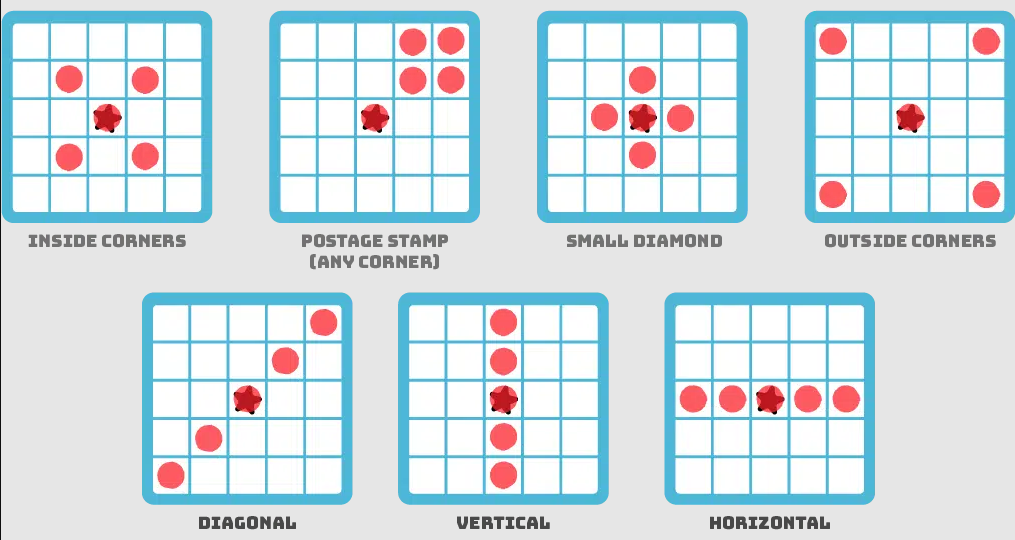In Bingo, winnings vary based on ticket sales, the game’s format, player count, and specific house rules.
Bingo Prize Structures
Fixed prizes vs. Progressive jackpots
In the realm of Bingo, there are two primary prize structures that players encounter: fixed prizes and progressive jackpots.
- Fixed Prizes: As the name suggests, fixed prizes have a predetermined amount. Regardless of how many people play or the length of the game, this prize remains static. For example, a Bingo hall might advertise a game where the winner receives $500. This amount won’t change, whether 10 people play or 100.
- Progressive Jackpots: This type of prize structure grows over time. A small portion of each ticket sale contributes to the jackpot. The jackpot continues to increase until a player wins. For instance, a starting jackpot might be $1,000. If nobody wins during a game, that amount might increase to $1,500 the next game, and so on. This structure can lead to very large prizes, especially if the jackpot goes unclaimed for several games.
How prize amounts are determined
Prize amounts in Bingo can be influenced by various factors:
- Entry Fees: A significant portion of the entry fees collected from players usually determines the prize money. For example, if a game collects $2,000 in ticket sales, the prize might be set at $1,500, with the remaining $500 covering operational costs and profit.
- Sponsorships and Promotions: Sometimes, businesses or individuals will sponsor specific Bingo games. They might provide a fixed prize, boosting the amount awarded to winners. For instance, a local business might contribute $300 to the prize pool as part of a promotion.
- Regulations: Certain jurisdictions have regulations that dictate the minimum or maximum prize amounts. For instance, some regions might have a rule stating that at least 70% of ticket sales must go towards the prize pool.

Factors Affecting Bingo Wins
While Bingo is a game of chance, certain factors can influence the potential for winning:
- Number of Players: The more players in a game, the lower each individual’s chance of winning. If you’re playing in a hall with 200 other players, your odds are 1 in 200. However, in a smaller game with only 50 players, your odds improve to 1 in 50.
- Type of Bingo Game Being Played: There are various types of Bingo games, each with different rules and patterns. Some games might require you to complete a specific pattern, while others might be a simple full-card Bingo. Understanding the type of game can help in assessing one’s chances.
- House Rules and Regulations: Every Bingo hall or online platform will have its own set of rules. Some might offer bonuses for early wins, while others might have specific rules about the validation of a winning card. Being familiar with these can give a player an advantage.
Major Bingo Wins in History
Notable Jackpot Winners
Throughout Bingo’s storied history, numerous individuals have taken home significant prizes, forever cementing their names in the annals of the game.
- Jennifer Thompson’s Massive Win: In 2015, Jennifer Thompson from Texas claimed a Bingo jackpot of a staggering $1 million. This win made headlines due to the sheer size of the prize and the fact that Jennifer had only spent $20 on her Bingo card.
- The $2 Million Online Bingo Jackpot: Online Bingo platforms, given their global reach, often have larger prize pools. In 2018, an anonymous player on “BingoBlitz Online” hit a jackpot worth $2 million after buying a ticket for just $5.
Record-setting Wins
While individual jackpots can be impressive, some record-setting wins take the game to a whole new level.
- The Largest Single Bingo Win: Recorded in the UK in 2008, a former factory worker won an astonishing £5.9 million. This win remains unparalleled in its size and has become a legend among Bingo enthusiasts.
- Bingo World Championship: Organized annually, this event attracts players from all over the globe. The cumulative prize pool often reaches well over $3 million, with the winner taking home a substantial portion.

Implications of Big Wins
Huge jackpot wins not only change the life of the victor but also have a broader impact.
- Boosting the Game’s Popularity: Whenever there’s news of a massive jackpot win, it tends to attract more players. This surge in interest can be beneficial for both online platforms and traditional Bingo halls.
- Economic Impact: Large jackpot winners often spend their newfound wealth in various sectors of the economy. For instance, after winning her jackpot, Jennifer Thompson invested in local businesses, stimulating the local economy.
The stories of major wins serve as a testament to Bingo’s enduring appeal and the life-changing potential it holds for its players. While not everyone can expect to win millions, these tales inspire hope and showcase the game’s potential rewards.
Strategies to Increase Your Chances of Winning
Picking the Right Games
Navigating the sea of Bingo games can feel overwhelming, but selecting the right game can significantly impact your chances of securing a win.
- Game Size and Player Count: Opting for games with fewer participants can enhance your winning chances. If a particular Bingo hall or online platform hosts games with just 30 players as opposed to 300, you immediately have a 10x higher chance of winning in the smaller game.
- Specialty Games: Some Bingo games offer specialty rules or bonus rounds. Participating in these can present additional opportunities to win, aside from the main game. A game might have a rule where diagonal patterns yield bonus prizes.
- Time of Play: Playing at off-peak hours, when fewer players are online or in the hall, can increase your chances. If you’re flexible, try attending Bingo nights on weekdays rather than weekends.
Following Game Patterns and Trends
Much like stock traders look for market patterns, seasoned Bingo players often look for trends to get an edge.
- Popular Numbers: Over time, you might notice that certain numbers get called more frequently than others. Keeping track of these numbers can offer insights, though it’s essential to remember that each draw is independent and random.
- Card Strategies: Some players believe in the strategy of buying multiple cards for a single game. While this increases the cost of entry, it can also improve the odds of having a winning card. For instance, if a game allows five cards per player, and you buy all five, you’ve just increased your chances by 5x compared to playing a single card.
- Stay Updated: Online platforms sometimes provide statistics and data about past games, winners, and number frequencies. Regularly checking this information can provide you with insights and strategies.
Incorporating strategies doesn’t guarantee a win, but it can certainly bolster your chances. The combination of choosing the right games and staying attuned to patterns creates a more informed approach to the game, which many find rewarding beyond just the potential financial gains.

The Odds of Winning in Bingo
Mathematical Probability vs. Luck
In the world of Bingo, both probability and luck play pivotal roles. Let’s delve deeper into this balance.
- Mathematics Behind Bingo: The odds of winning in a Bingo game are calculated based on the number of cards you have versus the total number of cards in play. If 100 cards are in play and you have 5 of them, your odds are 5 in 100 or 5%. However, the randomness of number draws ensures unpredictability.
- The Role of Luck: While mathematical probabilities can provide insights into your chances, Bingo remains a game of chance. Just like flipping a coin, past outcomes (like number draws) don’t influence future results. So, even if a number hasn’t been drawn for a while, it doesn’t necessarily mean it’s “due” to appear.
Factors That Affect Your Odds
A myriad of factors can influence your chances in a Bingo game. Recognizing these can empower you to make informed decisions.
- Number of Cards in Play: The more cards you play, the higher your chances of winning. If a game has 200 cards in play and you hold 10, you have a 5% chance of winning.
- Pattern Complexity: Some Bingo games require complex patterns to win, which can reduce the odds of any single card winning. A simple line might be easier to achieve than an intricate pattern like a “stamp” or “blackout”.
- Special Rules: Occasionally, games introduce rules that can shift the odds. For instance, a rule might state that even if you get a Bingo, you need to draw an additional “lucky number” to claim the prize, adding another layer of chance.
- Player Expertise: Believe it or not, player skill can influence odds. Players who are more attentive and swift might be quicker to spot potential wins, especially in fast-paced games.
In essence, while each Bingo game holds a promise of victory, various elements can sway the odds. By understanding these components, players can approach the game with a blend of strategy and hope, optimizing their gameplay experience.
The Economics of Bingo
How Bingo Halls Make Money
Bingo halls, like any other business, need revenue to sustain operations. Here’s a breakdown of their primary income sources.
- Ticket Sales: The primary revenue source for Bingo halls comes from selling tickets or cards. If a card costs $10 and 200 players participate, the hall grosses $2,000.
- Cut from the Prize Pool: While a significant portion of ticket sales go towards the prize pool, the hall often retains a fraction for operational costs. For example, from the aforementioned $2,000, the hall might set aside $1,500 for prizes, using the remaining $500 for overheads and profit.
- Concessions and Refreshments: Many Bingo halls also sell refreshments and snacks. The profit margins on these can be substantial, offering another lucrative revenue stream.
Impact on Local Economies
Bingo halls can have a notable influence on local economies, and here’s how:
- Job Creation: Running a Bingo hall requires staff – from game organizers to refreshment vendors. This creates employment opportunities in the local community.
- Local Business Partnerships: Bingo halls often partner with local businesses for promotions or sponsorships. A restaurant nearby might offer discounts to Bingo players, creating a mutualistic relationship.
- Charitable Contributions: Many Bingo games, especially in the US, are organized by charitable entities. Profits from these games directly support local causes, ensuring community upliftment.
- Tourism Boost: In places renowned for Bingo, like parts of the UK, enthusiasts often travel to participate in large events or tournaments, indirectly boosting the local tourism industry.
As one can discern, the ripple effect of a Bingo hall goes beyond just the game. By stimulating commerce, creating jobs, and fostering community partnerships, Bingo remains an integral economic component in many regions.
The Social and Psychological Aspects of Winning
The Thrill of the Game
The allure of Bingo extends far beyond the promise of monetary gains. The sheer thrill of the game forms its foundation.
- Anticipation and Excitement: Each number draw fills the air with anticipation. The closer a player gets to shouting “Bingo!”, the more palpable the excitement becomes. This release of dopamine, a neurotransmitter associated with pleasure and reward, is a significant factor behind the game’s addictive nature.
- Social Interactions: Bingo isn’t just about numbers; it’s about people. Engaging with fellow players, celebrating wins, and even consoling losses fosters a sense of community. For many, the social aspect is as rewarding as any jackpot.
The Impact of Wins and Losses on Players’ Emotions
A game of chance like Bingo invariably comes with emotional highs and lows.
- Elation from Victory: Winning, be it a small prize or a jackpot, gives players a sense of achievement. This victory can boost self-esteem and confidence, leaving players eager for the next round.
- Dealing with Defeat: Losses, especially repeated ones, can be disheartening. However, the communal nature of Bingo often means that players support each other, softening the sting of defeat.
- Risk of Addiction: The roller-coaster of emotions, combined with the potential for monetary gain, can make Bingo addictive for some. Players should always be mindful of their emotional responses and ensure that their engagement remains healthy.
- Coping Mechanisms: Seasoned players often develop coping mechanisms for losses. Some view the game purely as entertainment, decoupling monetary outcomes from their enjoyment. Others set strict budgets, ensuring they never cross a financial line.
To summarize, Bingo is a tapestry of numbers, emotions, and social interactions. While the game’s monetary prospects are certainly enticing, its social and psychological dimensions are what truly define the Bingo experience.